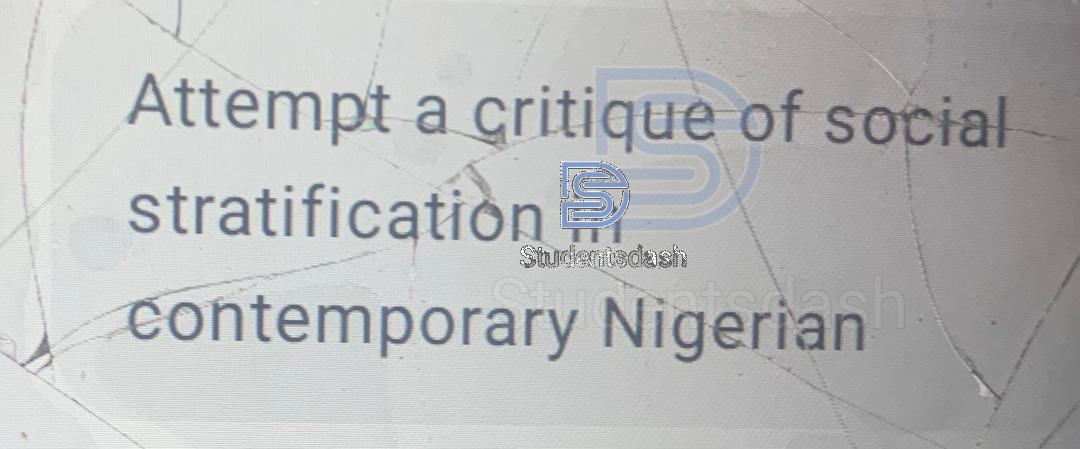EBSU-MCM 110 ASSIGNMENT Question and Answers
1. With practical examples, state and explain the differences between misinformation, disinformation and propaganda on social media
2. Do you think social media regulations are feasible in Nigeria? How and why?
Instructions – To be handwritten on a full-scalp sheet and be submitted on or before Friday this week.
Answers
Before you copy or make ur assignment read it and put it in your own words and arrangement and for more organized materials please use our app.
GET APP NOW 👈
1. Differences between misinformation, disinformation and propaganda on social media
Intro: Social media spreads news very fast. Sometimes the information is wrong. Misinformation, disinformation and propaganda are three types of wrong or one-sided information. They are different mainly by the person’s intention and purpose.
A. Misinformation
- Meaning: Wrong or inaccurate information shared by mistake. The person who shares it thinks it is true.
- Example: A student forwards a WhatsApp message that says “JAMB results out today” when the results are not out. The student did not check first.
- How it happens: People forward messages quickly, or read only the headline.
- Effect: It causes confusion and panic but the sharer did not mean harm.
B. Disinformation
- Meaning: False information shared on purpose to deceive people. The sharer knows it is false.
- Example: Someone creates a fake screenshot that says a bank is closing and shares it to make people panic and withdraw money.
- How it happens: People or groups use fake posts, deepfake videos, or fake accounts to push lies.
- Effect: It can cause harm like scams, fights, election manipulation or loss of trust.
C. Propaganda
- Meaning: Information presented in a one-sided way to support a group, person, or idea. It may use true facts but hides what does not help the message. The goal is to persuade.
- Example: A political page posts many clips of a candidate giving gifts, but never shows crime reports or failed promises.
- How it happens: Use of emotional posts, selective facts, sponsored posts, and many supportive accounts sharing the same message.
- Effect: People may form wrong opinions because they do not see the whole picture.
2. Are social media regulations feasible in Nigeria? How and why?
Yes, regulation is possible in Nigeria, but it must be fair, clear and protect people’s rights. If it is vague or used badly, it can become censorship.
Why regulation is needed:
- To stop dangerous messages that lead to violence.
- To reduce scams that make people lose money.
- To protect children and stop hate speech.
- To make platforms more responsible and open about what they remove.
How regulation can work (simple steps):
- Make clear laws
- Define what is illegal (for example: incitement to violence, child abuse content, fraud).
- Say how cases will be handled and allow people to appeal if their post is taken down.
- Have an independent regulator
- The regulator must not be controlled by politicians. It should include experts, journalists and civil society.
- The regulator should publish reports so people can see what it does.
- Ask platforms to take some responsibility
- Platforms should have a local contact for urgent problems.
- They should publish transparency reports (how many posts removed, and why).
- Political ads and paid content must be labeled.
- Use a fair enforcement system
- First: warning and education.
- Repeat: temporary limits on posting.
- Serious harm: legal action with court oversight.
- Teach media literacy
- Schools, NYSC and radio programs should teach people how to spot fake news.
- Simple guides in English and local languages will help many people.
- Work with fact-checkers and civil groups
- Fact-check groups can verify stories quickly during elections or crises.
- Universities and NGOs can help train the public.
- Protect rights
- No blanket shutdowns of the internet.
- Courts must approve access to user data.
- Journalists and whistleblowers should be protected.
Conclusion:
Regulation is feasible in Nigeria if it focuses on real harm, respects free speech, uses clear laws and independent oversight, works with platforms, and teaches people how to check information. If rules are unclear or used for political gain, regulation will only become censorship.

